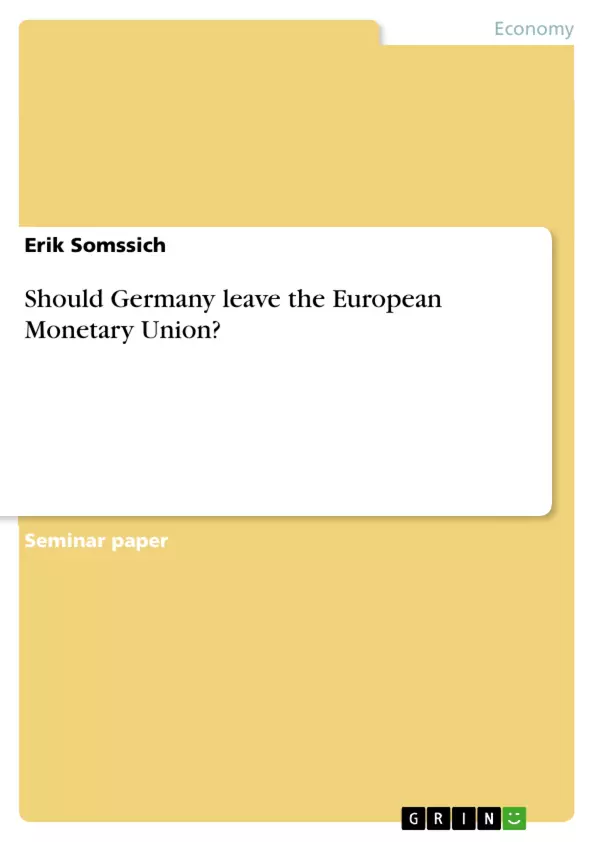The euro is the currency of the European Union. To date, only 19 of the 28 members of the Union have established the common currency. The euro was introduced on January 1st, 1999 as book money and on January 1st, 2002 as hard cash. The founding members of the currency union were Belgium, Germany, Finland, France, Ireland, Italy, Luxembourg, Netherlands, Austria, Portugal and Spain.
In the following 16 years, the Union was complemented by Greece, Slovenia, Malta, Cyprus, Slovakia, Estonia, Latvia and Lithuania. Great Britain, Denmark and Sweden refused to introduce the euro in their countries. The remaining members of the union haven't fulfilled the admission criteria yet.1 The launch of the euro was a major achievement in the on-going story of European integration since the end of the Second World War, in order to strengthen cooperation between countries, especially in terms of free trade. It is now the second most important currency in the world after the US dollar.
The vision of the euro was to prove a stable and growth-friendly economic environment within the European union. Responsible for ensuring price stability is the independent European Central Bank (ECB) with its monetary policy, including the printing of money for the euro area. The single currency simplified and reduced costs of trade, made prices more transparent and comparable and put an end to the cost and hassle of exchanging currencies for travellers within the 19 euro area countries.
Inhaltsverzeichnis (Table of Contents)
- Introduction
- Germany in the monetary union
- Advantages
- Disadvantages
- Consequences of a withdrawal
- Conclusions
Zielsetzung und Themenschwerpunkte (Objectives and Key Themes)
This paper examines the potential consequences of Germany withdrawing from the European Monetary Union (EMU). It aims to assess the advantages and disadvantages of Germany's participation in the EMU and to analyze the potential impact of a withdrawal on both Germany and the eurozone as a whole.
- The benefits and drawbacks of Germany's membership in the EMU
- The potential economic and political consequences of a German withdrawal
- The role of fiscal policy and the lack of a fiscal union in the EMU
- The impact of the euro on trade, price transparency, and currency exchange
- The importance of maintaining a stable and growth-friendly economic environment within the European Union
Zusammenfassung der Kapitel (Chapter Summaries)
- Introduction: This chapter provides an overview of the European Monetary Union, its history, and the rationale behind its creation. It also highlights the benefits of the euro, such as reduced trade costs, price transparency, and the elimination of currency exchange costs.
- Germany in the monetary union: This chapter explores the advantages and disadvantages of Germany's participation in the EMU. It examines how the euro has affected Germany's economy, including its impact on interest rates, inflation, and trade.
- Consequences of a withdrawal: This chapter analyzes the potential consequences of a German withdrawal from the EMU. It examines the potential economic and political impacts on both Germany and the eurozone as a whole.
Schlüsselwörter (Keywords)
This paper focuses on the European Monetary Union, its history, its benefits, and the potential consequences of a German withdrawal. Key topics include the euro, trade, price transparency, currency exchange, interest rates, inflation, fiscal policy, and the lack of a fiscal union within the EMU. The paper also explores the economic and political implications of a German exit from the eurozone.
Frequently Asked Questions
What are the main advantages of Germany being in the Eurozone?
Advantages include reduced costs for trade, price transparency within Europe, and the elimination of currency exchange risks for businesses and travelers.
What would be the consequences if Germany left the European Monetary Union?
A withdrawal could lead to significant economic instability, political tensions within the EU, and potential changes in interest rates and inflation for Germany.
Which countries were the founding members of the currency union?
The founding members in 1999 were Belgium, Germany, Finland, France, Ireland, Italy, Luxembourg, Netherlands, Austria, Portugal, and Spain.
What is the role of the European Central Bank (ECB)?
The ECB is independent and responsible for ensuring price stability through monetary policy and the issuance of the euro currency.
Why did some EU countries like Great Britain or Denmark refuse to join the euro?
These countries chose to maintain their national currencies to keep independent control over their own monetary and fiscal policies.
- Quote paper
- Erik Somssich (Author), 2016, Should Germany leave the European Monetary Union?, Munich, GRIN Verlag, https://www.grin.com/document/356694



